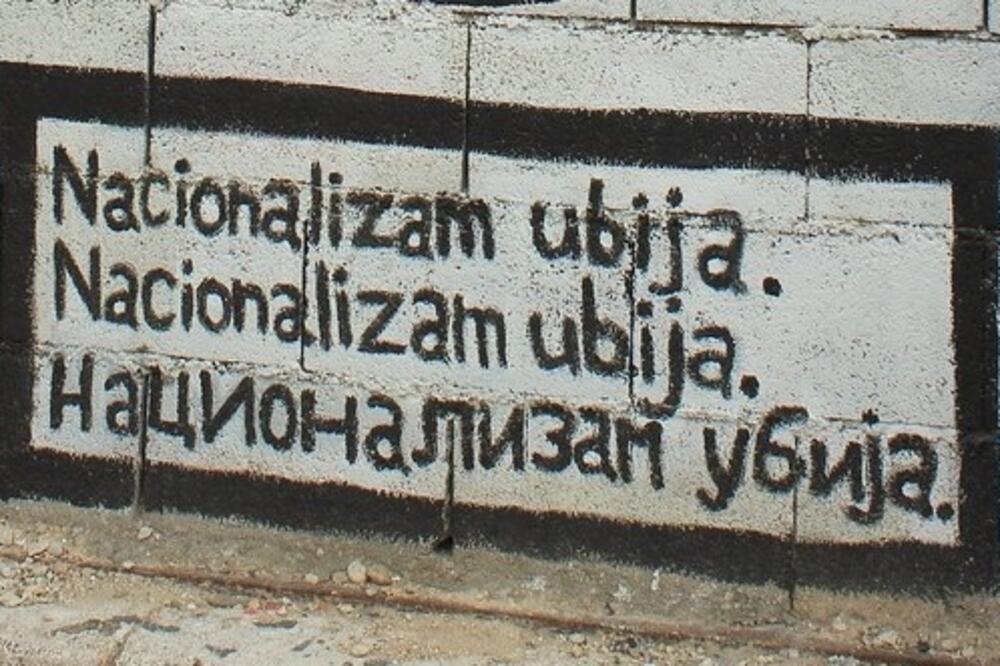Small country for big nationalism; writes on the graffiti that found its wall on one of Zagreb's busiest streets. It's been there for some time and the assumption is that it's another tough treatment of the old advertising slogan of the local tourism industry - a small country for a big holiday. The same - we think it is justified, because it is not very well thought out PR - has experienced a lot of challenges, even through clearly stated allusions that are somewhat close to the thesis from the quoted graffiti.
Let's say a piece of music, which does not pretend to be politically correct, says: "A small country for a big vacation and even bigger shit, a sea full of corpses from eastern countries." They took the mattresses, they didn't return them, so now they are floating somewhere towards Vis".
But nationalism is what makes us look back at the message from the aforementioned graffiti. Of course, it is not necessary that the size of the state or the number of ethnic groups proportionally determine the degree, or spread of some nationalism, the historical context is key.
There are examples of very small countries in which there is a low degree of nationalism (Iceland, for example), or relatively small countries where nationalism is kept within the contours of the controlled (for example, Finland), while, for example, Canada and Australia could be examples of large and populous countries in which nationalism within the domestic population at moderately low levels.
But the states created by the collapse of socialist Yugoslavia are not such a case, so graffiti quite appropriately hit the core of the problems in those societies. Nationalism - carefully created, nurtured and encouraged here for decades, until the period preceding the end of the SFRY - played and is still playing its basic task intended for it.
Such a function consists of ideological practices of unproductive building of a sense of common collective identity according to the model of ethnic unification based on language, territory and the conservatively understood idea of culture, all with the aim of diverting attention and concealing the fundamental economic-political processes through which we are literally dispossessed as a society - that is stolen - in one generation.
The processes are very related and similar, with nuances of differences, whether we are talking about older "traditional" nationalisms such as Serbian, Croatian and Slovenian, or about newer ones - Bosniak, Macedonian, Montenegrin - which are to some extent a consequent response to the aforementioned more aggressive regional nationalisms, which of course it does not justify them.
How far does the potential of such (self)deception go - when the saga of national identity overshadows every truly relevant sphere of existence to the point of stupidity - I was reminded of a fragment of a long-ago conversation with an acquaintance about corruption, clientelism, tycoonization, nepotism and other evils that have afflicted us through the so-called transition. Roughly speaking, he told me: "You know, when they steal from us, I still prefer that at least our own people steal from us."
Bonus video:




